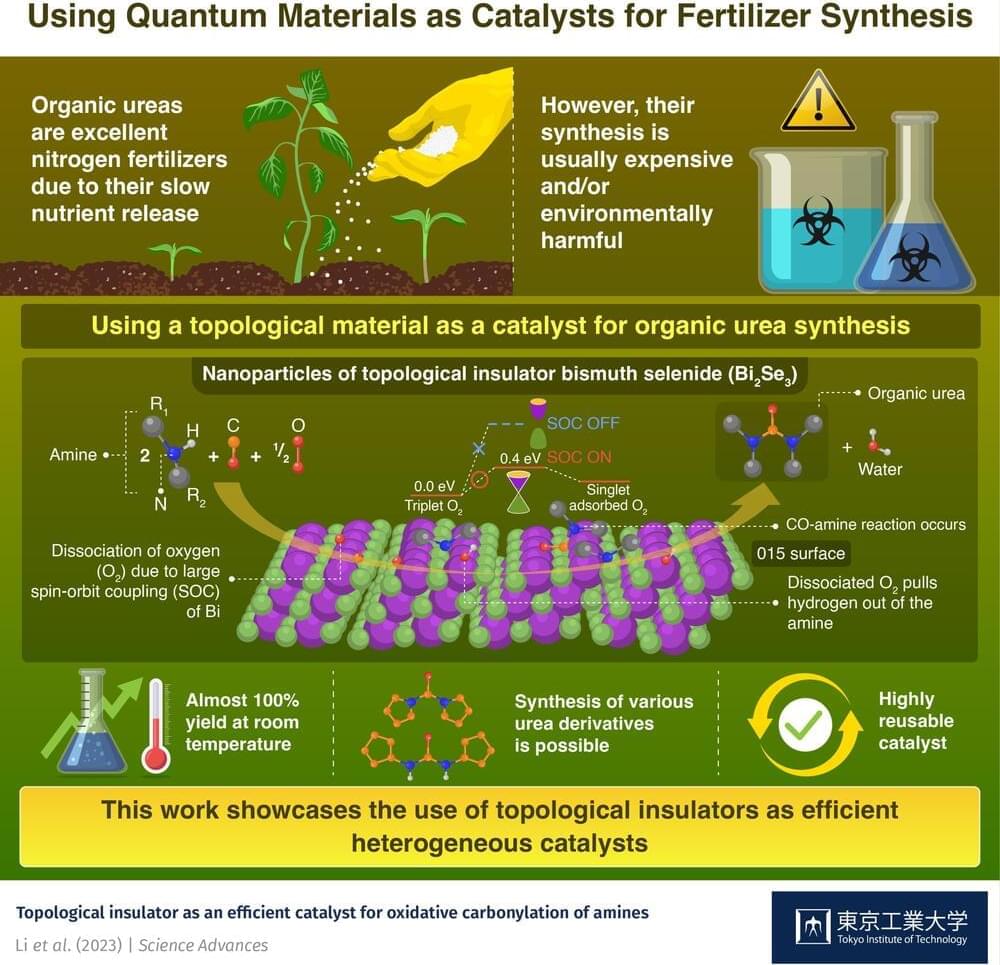Synthetic fertilizers, one the most important developments in modern agriculture, have enabled many countries to secure a stable food supply. Among them, organic ureas (or organoureas) have become prominent sources of nitrogen for crops. Since these compounds do not dissolve immediately in water, but instead are slowly decomposed by soil microorganisms, they provide a stable and controlled supply of nitrogen, which is crucial for plant growth and function.
However, traditional methods to synthesize organoureas are environmentally harmful due to their use of toxic substances, such as phosgene. Although alternative synthesis strategies have been demonstrated, these either rely on expensive and scarce noble metals or employ catalysts that cannot be reused easily.
In a recent effort to address these challenges, a research team including Honorary Professor Hideo Hosono from Tokyo Institute of Technology, Japan, has leveraged the quantum properties of bismuth selenide (Bi2Se3) to synthesize organoureas. Their study is published in Science Advances.
